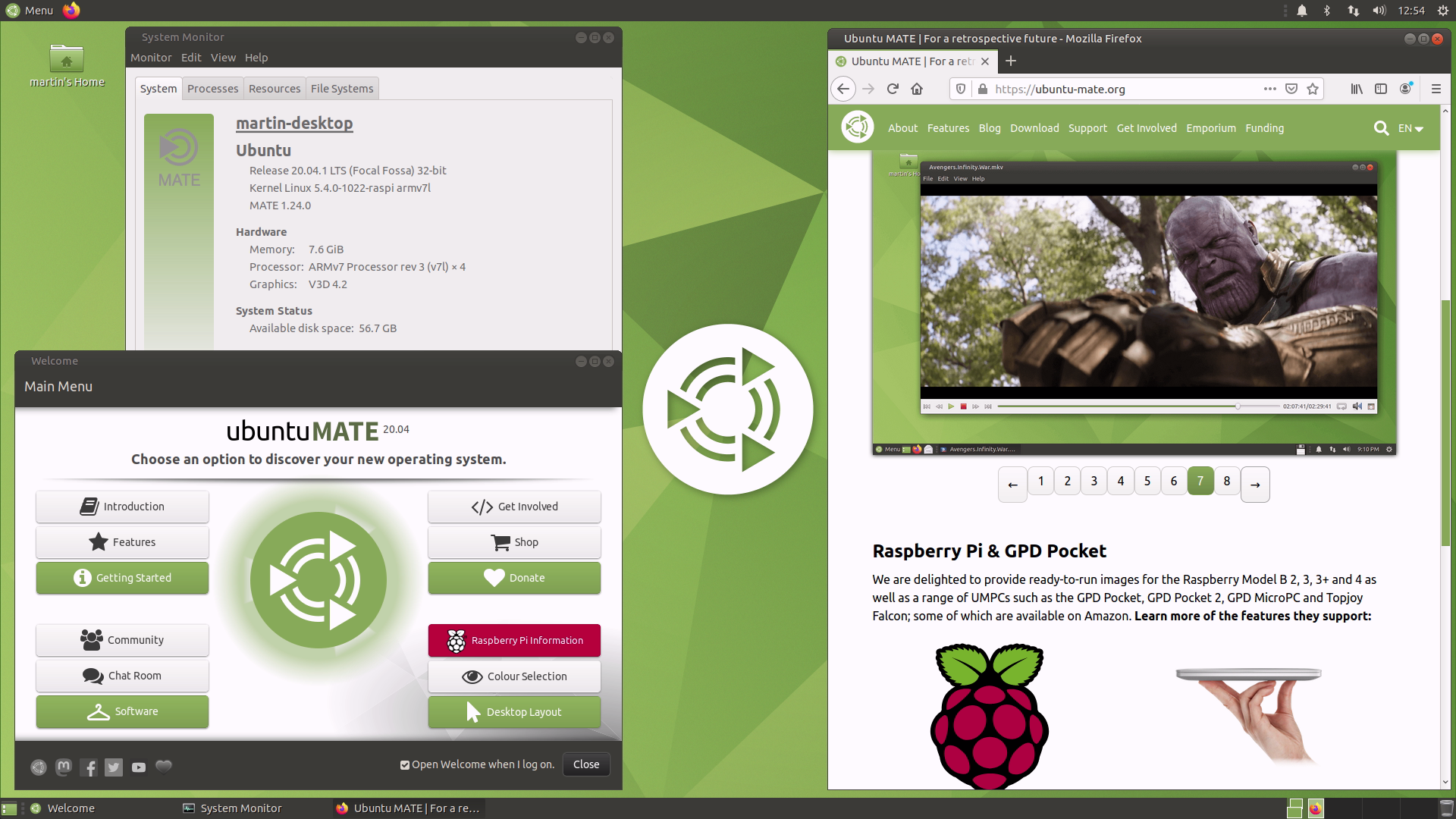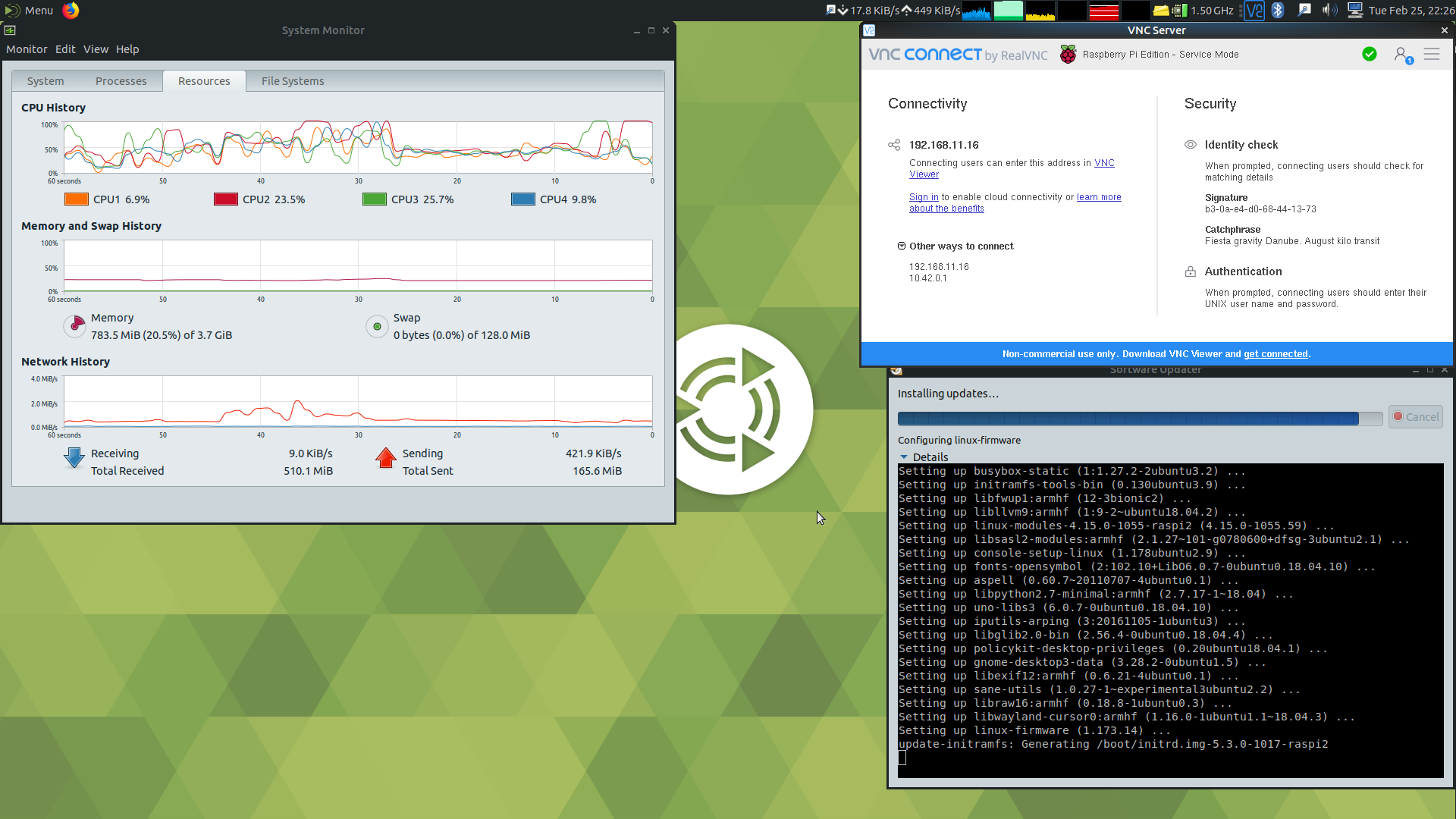Mastering RemoteIoT Web SSH: The Ultimate Guide To Downloading Ubuntu
Hey there, tech enthusiasts! If you're diving into the world of RemoteIoT web SSH and looking to download Ubuntu, you're in the right place. Today, we're going to break down everything you need to know about setting up your remote server with Ubuntu using web SSH. Whether you're a seasoned pro or just getting started, this guide has got your back. So, grab a coffee, and let's get into it!
RemoteIoT web SSH is not just another buzzword in the tech world; it's a powerful tool that allows you to manage your IoT devices from anywhere. This capability opens up a world of possibilities, especially when combined with the robustness of Ubuntu. Understanding how to use web SSH for downloading and configuring Ubuntu on your remote server is crucial for anyone looking to enhance their IoT setup.
Before we dive into the nitty-gritty, let's establish why this matters. In today's fast-paced tech landscape, having the ability to remotely access and configure your IoT devices is more than just convenient—it's essential. With RemoteIoT web SSH and Ubuntu, you can streamline your operations, increase efficiency, and ensure your devices are always up to date. Let's explore how you can harness this power.
- Jenna Lyn Ward The Rising Star Whos Taking Hollywood By Storm
- 5movierulz Telugu 2024 Ndash Your Ultimate Guide To Downloading Movies
Understanding RemoteIoT Web SSH
What is RemoteIoT Web SSH?
RemoteIoT web SSH, simply put, is a secure method to access and control IoT devices over the internet. It leverages SSH (Secure Shell) protocols to establish a secure connection between your local machine and your IoT devices. This setup allows you to execute commands, manage configurations, and even download software like Ubuntu—all from the comfort of your browser.
Why Choose Web SSH?
Web SSH offers several advantages, especially in the realm of IoT. Firstly, it eliminates the need for installing additional software on your local machine. Secondly, it provides a secure and encrypted connection, ensuring that your data remains safe from prying eyes. Lastly, it's incredibly versatile, supporting a wide range of operations from file transfers to system updates.
Setting Up Your RemoteIoT Environment
Prerequisites for Using RemoteIoT Web SSH
Before you can start using RemoteIoT web SSH, there are a few things you need to have in place. First, ensure that your IoT devices are properly configured and connected to the internet. Next, you'll need a stable internet connection on your local machine. Lastly, make sure that SSH is enabled on your IoT devices, allowing for remote connections.
- Movierulzcom 2025 The Ultimate Guide To Streaming Movies Safely And Legally
- Movierulz Movierulz The Ultimate Guide To Understanding The Controversial Streaming Hub
- IoT devices with SSH enabled
- Stable internet connection
- Basic knowledge of SSH commands
Downloading Ubuntu via RemoteIoT Web SSH
Choosing the Right Ubuntu Version
When it comes to downloading Ubuntu, selecting the right version is crucial. For IoT devices, you'll want to opt for a lightweight version like Ubuntu Core or Server. These versions are optimized for performance and security, making them ideal for remote management. Additionally, they come with the latest updates and patches, ensuring your devices are protected against vulnerabilities.
Steps to Download Ubuntu
Downloading Ubuntu via RemoteIoT web SSH is straightforward. Here's a step-by-step guide to help you through the process:
- Log in to your RemoteIoT web SSH interface.
- Use the wget command to download the desired Ubuntu version. For example:
wget https://releases.ubuntu.com/core/22/ubuntu-22.04-core-amd64.img.xz - Monitor the download progress using the
ls -lcommand. - Once the download is complete, verify the file integrity using checksums.
Configuring Ubuntu on Your IoT Device
Initial Setup
After downloading Ubuntu, the next step is configuring it on your IoT device. This involves setting up the necessary partitions, installing the operating system, and configuring basic settings. You can use tools like fdisk or parted to create partitions and dd to write the image to your storage device.
Post-Installation Configuration
Once Ubuntu is installed, it's time to configure your system. This includes setting up network settings, creating user accounts, and installing essential software. You can use the apt package manager to install additional software and updates. Additionally, consider enabling automatic updates to ensure your system stays secure and up to date.
Best Practices for Managing RemoteIoT Devices
Security Measures
Security should always be a top priority when managing IoT devices remotely. Implement strong password policies, use SSH keys for authentication, and regularly update your system to patch any vulnerabilities. Additionally, consider using a firewall to restrict access to your devices and monitor logs for any suspicious activity.
Performance Optimization
To ensure optimal performance, regularly monitor your system's resource usage and make adjustments as needed. Use tools like top or htop to monitor CPU and memory usage. Additionally, consider using lightweight applications and disabling unnecessary services to reduce resource consumption.
Common Issues and Troubleshooting
Connection Problems
If you're experiencing connection issues with your RemoteIoT web SSH, there are a few things you can check. Ensure that your IoT device is properly connected to the internet and that SSH is enabled. Verify that your firewall settings allow SSH connections and check your SSH configuration file for any errors.
Download Failures
Occasionally, you may encounter download failures when using RemoteIoT web SSH. This can be due to a variety of factors, such as network instability or server issues. To troubleshoot, try restarting your download, checking your internet connection, and verifying the download link.
Advantages of Using Ubuntu for IoT Devices
Stability and Security
Ubuntu is renowned for its stability and security, making it an excellent choice for IoT devices. With regular updates and a strong community backing, you can be confident that your devices are protected against the latest threats. Additionally, Ubuntu's robust package management system makes it easy to install and update software.
Flexibility and Customization
One of the standout features of Ubuntu is its flexibility. Whether you're running a simple sensor or a complex automation system, Ubuntu can be customized to meet your needs. With a wide range of tools and libraries available, you can create a tailored solution that fits your specific use case.
Conclusion: Empowering Your IoT Setup with RemoteIoT Web SSH and Ubuntu
In conclusion, mastering RemoteIoT web SSH and downloading Ubuntu is a powerful combination that can take your IoT setup to the next level. By following the steps outlined in this guide, you can efficiently manage your devices, ensuring they are secure, optimized, and up to date. Remember to always prioritize security and regularly monitor your systems for any issues.
Now that you've got the knowledge, it's time to take action! Share this article with your fellow tech enthusiasts, leave a comment with your thoughts, and explore more articles on our site. Together, let's build a smarter, more connected world!
Table of Contents
- Understanding RemoteIoT Web SSH
- Setting Up Your RemoteIoT Environment
- Downloading Ubuntu via RemoteIoT Web SSH
- Configuring Ubuntu on Your IoT Device
- Best Practices for Managing RemoteIoT Devices
- Common Issues and Troubleshooting
- Advantages of Using Ubuntu for IoT Devices
- Conclusion



Detail Author:
- Name : Nova Johnson
- Username : dejah.dietrich
- Email : tkub@brown.biz
- Birthdate : 1980-10-26
- Address : 28144 Schamberger Path North Elvisport, MA 29651
- Phone : +18547280239
- Company : Moore, Marquardt and Zboncak
- Job : Rehabilitation Counselor
- Bio : Quibusdam ea corporis repellat facere eaque. Itaque commodi voluptatibus excepturi. Aspernatur laborum sit voluptas soluta cum exercitationem.
Socials
tiktok:
- url : https://tiktok.com/@rae_murazik
- username : rae_murazik
- bio : Maxime eum aut voluptatem ipsa quaerat accusamus nobis.
- followers : 6172
- following : 2868
instagram:
- url : https://instagram.com/murazikr
- username : murazikr
- bio : Dolor reprehenderit et dolores beatae quae. Impedit assumenda et eius.
- followers : 6728
- following : 1167
facebook:
- url : https://facebook.com/rae_id
- username : rae_id
- bio : Non reprehenderit consectetur rerum dolor reprehenderit.
- followers : 6746
- following : 947
twitter:
- url : https://twitter.com/murazik1985
- username : murazik1985
- bio : Odio illum ex molestias. Accusamus aut quasi quidem qui. Dolor sit illum ea atque. Et eveniet voluptas rerum provident in.
- followers : 266
- following : 1531
linkedin:
- url : https://linkedin.com/in/murazikr
- username : murazikr
- bio : Et deserunt eum qui eius.
- followers : 1826
- following : 2688